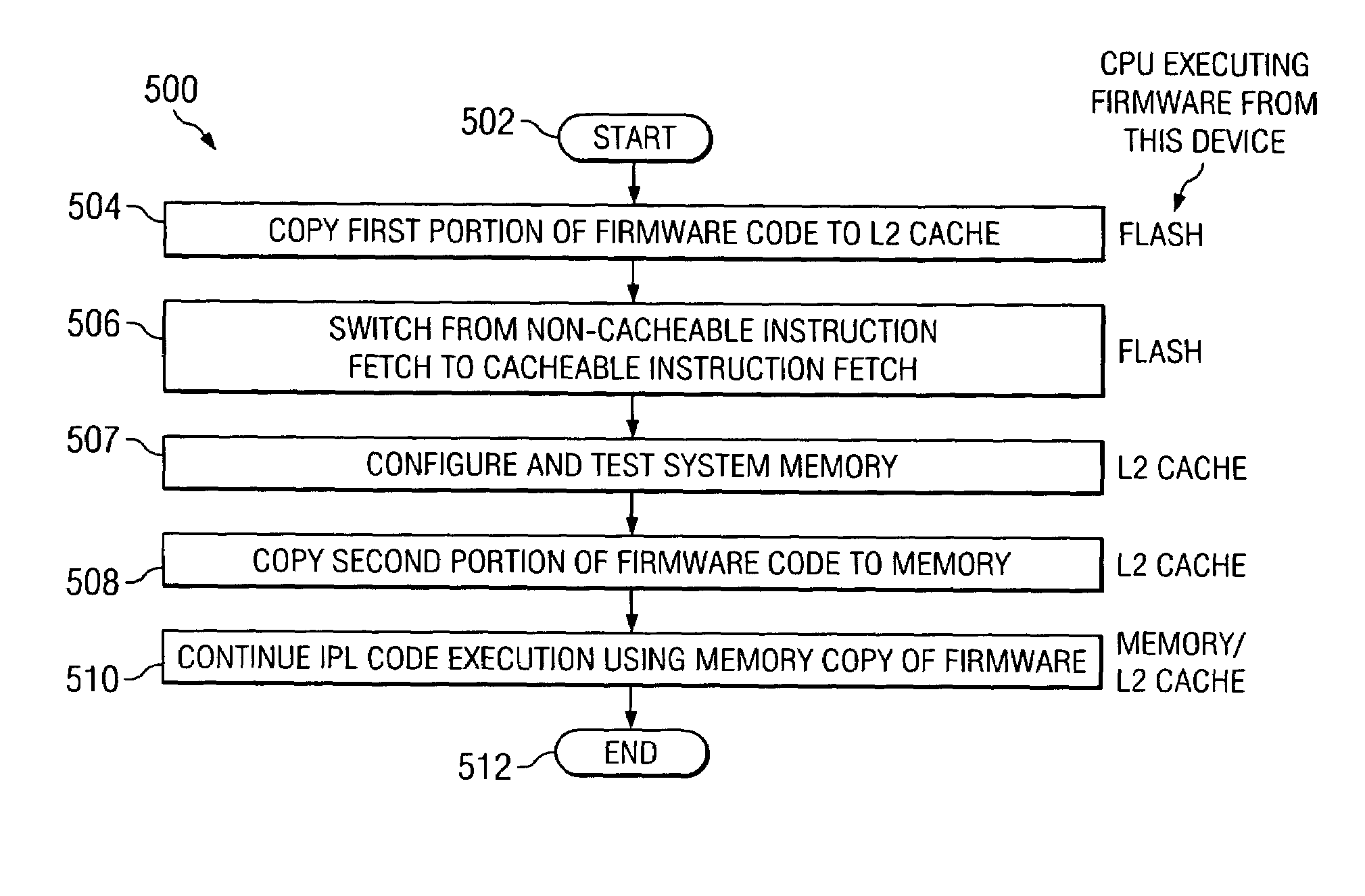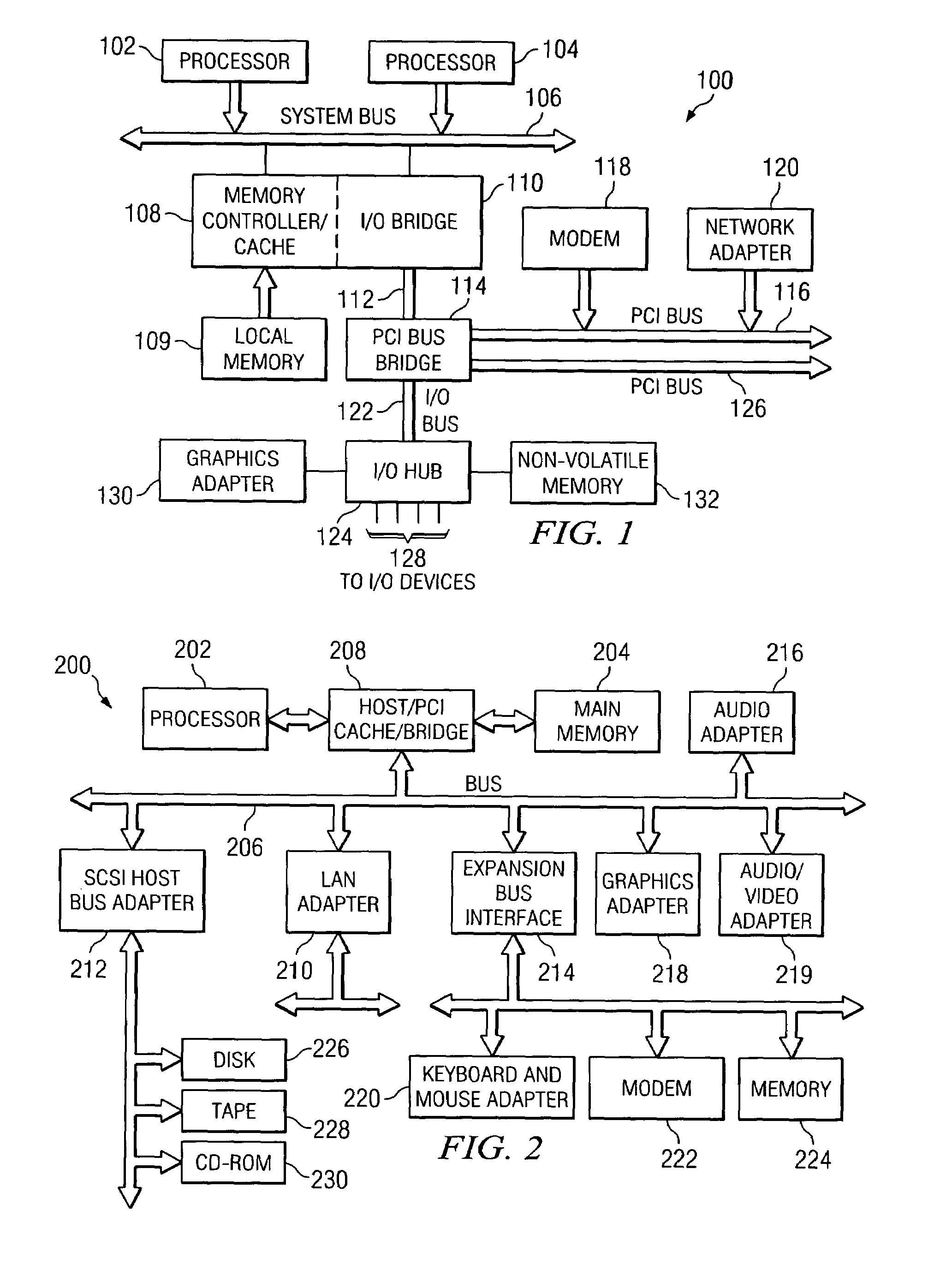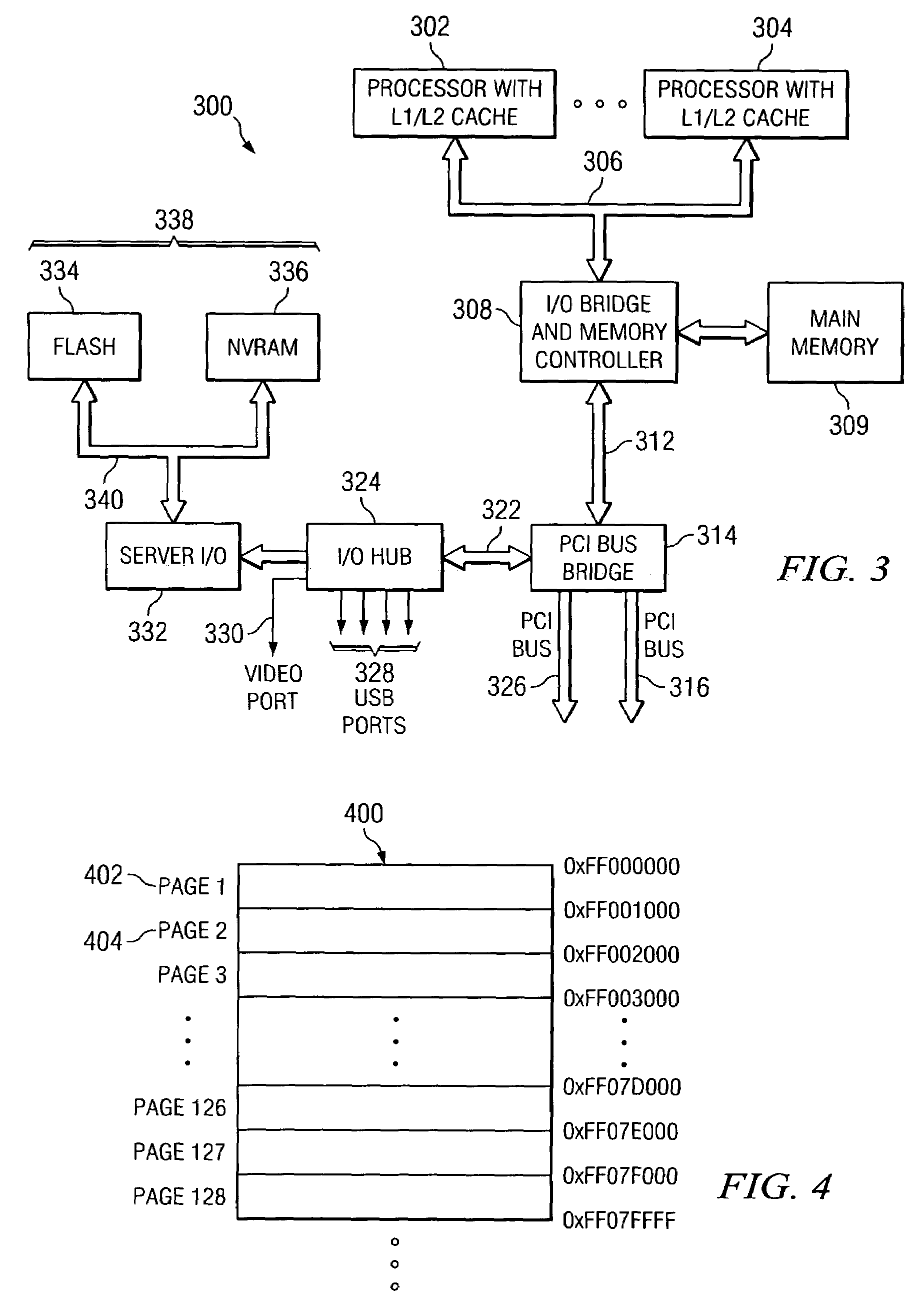Technique for system initial program load or boot-up of electronic devices and systems
a technology for applied in the field of electronic devices and systems, can solve the problems of personal computers, inability to provide a ready state, and large size (and associated cost) of flash memory that will be required by the system/device, so as to improve the overall system performance and reduce the overall time for performing
- Summary
- Abstract
- Description
- Claims
- Application Information
AI Technical Summary
Benefits of technology
Problems solved by technology
Method used
Image
Examples
Embodiment Construction
[0021]While the methods and techniques described herein are generally directed to a data processing system having one or more CPUs, those of ordinary skill in the art will recognize that these methods and techniques are similarly applicable to other types of devices having electronic control. In addition, use of the term CPU or central processing unit in the present description should be generally construed to mean any type of processor or controller—whether general purpose or application specific.
[0022]Referring to FIG. 1, a block diagram of a data processing system is depicted in accordance with a preferred embodiment of the present invention. Data processing system 100 is an example of a server computer system. Data processing system 100 may be a symmetric multiprocessor (SMP) system including a plurality of processors 102 and 104 connected to system bus 106. Alternatively, a single processor system may be employed. Also connected to system bus 106 is memory controller / cache 108,...
PUM
 Login to View More
Login to View More Abstract
Description
Claims
Application Information
 Login to View More
Login to View More - R&D
- Intellectual Property
- Life Sciences
- Materials
- Tech Scout
- Unparalleled Data Quality
- Higher Quality Content
- 60% Fewer Hallucinations
Browse by: Latest US Patents, China's latest patents, Technical Efficacy Thesaurus, Application Domain, Technology Topic, Popular Technical Reports.
© 2025 PatSnap. All rights reserved.Legal|Privacy policy|Modern Slavery Act Transparency Statement|Sitemap|About US| Contact US: help@patsnap.com



